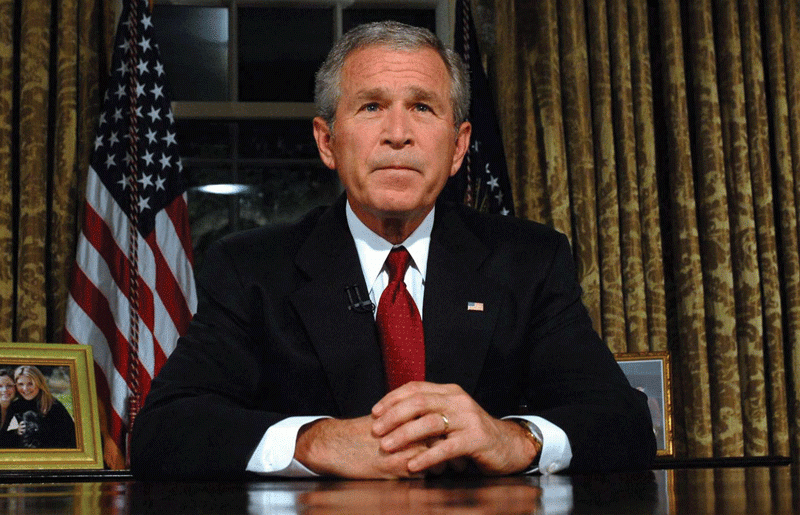
IN every sphere of public engagement, be it corporate leadership, government, state-owned enterprises, civil society and especially politics, there is a recurring temptation to rally behind a person rather than the ideas they advance.
It is an instinct rooted in human nature because personalities are vivid, familiar and easier to digest than complex policies or long-term plans. But we all must be mindful that it is also an instinct that weakens governance and distorts public judgment.
The recent Donald Trump–Zohran Mamdani dynamic in the oval office, illustrates this phenomenon with surgical clarity.
Trump’s pivot toward policy positions more aligned with Mamdani’s vision for transforming New York has left a portion of his supporters scrambling to recalibrate their loyalties. Many who initially dismissed Mamdani, supporting Trump’s unfounded racist remarks about him, have suddenly embraced Mamdani’s thinking, simply because Trump has pivoted in his favour.
Their stance did not evolve because of any engagement with the underlying ideas, they changed their tune because the personality they trust signalled it was safe to do so.
This behaviour exposes a broader problem which is, when loyalty to individuals supersedes engagement with ideas, the public conversation becomes shallow, reactive and manipulable.
We end up debating who is likable, formidable or strategically positioned instead of interrogating the quality of a proposal, its feasibility or its possible consequences. The central question becomes unavoidable — how do we recalibrate our political and civic engagement so that ideas — not personalities — take centre stage?
Consistency
- Letter from America: Is former president Donald Trump a hero or villain?
- Chidzivo, Tarakinyu clinch Kabag honours
- Letter from America: Is former president Donald Trump a hero or villain?
- The Fiddler: Is honesty the best policy?
Keep Reading
The first imperative is simple: ideas endure, personalities shift. Charisma rises and falls. Alliances change. Leaders pivot for reasons that range from electoral calculations to new information, pressure from political coalitions or shifts in public mood.
None of these movements necessarily reflect the merit of the underlying ideas. Ideas, however, can be examined on stable criteria:
Does the proposal coherently address a real problem?
What are the opportunity costs and trade-offs?
Is there credible evidence that the idea will work?
What measurable outcomes would indicate success or failure?
When we judge proposals by these metrics rather than by who introduces them, we create a consistent evaluative framework that persists through changing administrations. This consistency is the bedrock of accountability.
Leaders can be held responsible for whether the idea works, not for whether their personality fits the public’s appetite at a given moment.
Ideas build trust
Second, an ideas-first culture protects the public from cycles of backlash, disillusionment and disorientation. When people adopt a stance simply because a leader endorses it, any future shift by that leader becomes personal.
Supporters may feel betrayed, even when the revised position is grounded in better evidence or improved understanding. Trust collapses, not because the idea failed, but because loyalty was based on an individual rather than a principle.
Evaluating ideas independently changes the emotional circuitry of public life. A leader’s pivot is no longer a betrayal, it becomes an opportunity to reassess evidence and refine solutions.
Policy adjustments can be praised as intellectual honesty rather than condemned as political treason. This approach allows the public to stay grounded even as leaders evolve. It also holds leaders to higher standards, which say that, they cannot hide behind personal popularity when ideas falter.
Personality politics
A third challenge is that personality-driven discourse suffocates meaningful debate. When the spotlight is on a leader’s charisma, credibility or symbolic power, the conversation shifts away from the substantive mechanics of policy, such as, financing, implementation, risk, trade-offs and long-term implications. Rhetorical theatrics replace rigorous scrutiny. Identity loyalties draw out dissent.
This narrowing of public discourse has real consequences. It discourages contributions from experts, practitioners, scholars and citizens with lived experience, especially those whose assessments may challenge dominant narratives. The conversation becomes less about the policy’s merits and more about affirming group loyalty.
Focusing on ideas, however, broadens the field. It makes room for interdisciplinary perspectives, evidence-based critiques and the social realities of those affected by policy change. When the dialogue revolves around the what and the how and not the who, public debate becomes richer, more inclusive and more grounded in reality.
Prioritising ideas
Fourth, an ideas-based culture embeds a healthy cycle of governance, characterised by first a proposal, then implementation, followed by evaluation and adjustments where necessary. Policy success should be determined by measurable results determined by asking the following questions:
Did the initiative expand opportunity?
Did it reduce harm or improve welfare?
Was it implemented efficiently and transparently?
An idea-driven framework makes it easier to refine policies or discontinue those that fail, without triggering political drama or accusations of disloyalty. Leaders are freed to adapt, and the public is empowered to demand evidence rather than spectacle.
Such a system weakens the influence of personality cults because accountability becomes empirical rather than emotional. Governance becomes a continuous learning process, not a performance stage for individual politicians.
An ideas-first culture
Fifth, placing ideas at the centre allows disagreement to be productive instead of polarising. When the measure of credibility is the strength of an argument, not the status of the person who delivers it, debate becomes a tool for refining policy rather than a battleground for defending personal loyalties. An ideas-first culture creates space for:
cross-partisan analysis,
interdisciplinary critique,
cross-generational engagement and
dialogue grounded in lived experience.
This environment provides natural protection against blind spots, particularly those that charismatic leaders can unintentionally conceal. When scrutiny is distributed across many voices, policy becomes more resilient, adaptable and reflective of real-world conditions.
When personalities eclipse ideas
To be clear, leadership matters. Human beings respond to conviction, courage, moral clarity and strategic acumen. Leaders inspire, coordinate and mobilise. But leadership divorced from sound ideas becomes performance art. The solution is not to erase the human element but to recalibrate our evaluative instincts.
We should admire resilience, integrity and wisdom in leaders, but not at the price of abandoning critical thought about the policies they champion.
When a leader shifts position, the public response should be guided by evidence: Has the idea improved? Have new facts emerged? Does the pivot strengthen public welfare? The answer should not hinge on whether the shift flatters or threatens our emotional investment in a particular personality.
Institutions can help. Transparent data, independent evaluators, open forums and clear criteria for measuring policy outcomes pull the conversation away from personality politics and back to substance.
Public dashboards, monitoring plans, budget disclosures and risk assessments turn policy debates into empirical conversations instead of moral drama.
These mechanisms also soften the political impact of policy revisions. Adjustments become expected and normal, not a cause for public uproar or partisan blame.
Passion over principle
The recent Trump–Mamdani episode captures something deeper than a single political shift: it exposes the fragility of a political culture that elevates fervour over analysis. If citizens anchor their convictions to personalities rather than principles, the entire democratic ecosystem becomes vulnerable to misdirection, manipulation and reactive swings in opinion.
A healthier civic culture requires steady commitment to ideas, where ideas are tested by evidence and are open to revision and evaluated against the public good.
When societies prioritise ideas over personalities, they cultivate a political ecosystem that is harder to destabilise and easier to improve.
For citizens, practitioners and scholars alike, nurturing this culture means consistently demanding three things:
Clarity about policy goals and their expected impact;
Transparency in evaluation, data and decision-making; and
Respect for evidence-based viewpoints, especially those that challenge prevailing sentiment.
We must value leaders who embrace intellectual humility, those who acknowledge uncertainty, welcome critique and shift course when evidence demands it, without collapsing our own independent judgment into their personal narrative. The strength of any society lies not in the magnetism of its leaders but in the sturdiness, coherence and adaptability of its ideas.
Conclusion
The turbulence of contemporary politics has made it all too easy to retreat into the comfort of personalities, treating leaders as lodestars whose shifts dictate our own. But this instinct, however human, undermines democratic maturity and clouds public judgment.
To build resilient governance, citizens must cultivate the discipline of evaluating proposals by their substance, not their sponsor.
An ideas-first approach not only anchors accountability and trust but also enriches public discourse and strengthens institutions, whilst making them learning spaces. It allows societies to evolve without being destabilised by the personal trajectories of individual leaders.
When we commit to assessing policies through evidence, clear trade-offs and measurable outcomes, we reinforce a culture that prizes long-term progress over short-term political theatre.
Ultimately, the future of any polity depends not on the charisma of its public figures but on the robustness of the ideas it chooses to debate, adopt and defend.
Prioritising ideas over personalities ensures that public life is guided by reasoned judgment, inclusive deliberation and a shared commitment to the common good, which is, values that endure long after any single leader exits the stage.
- Ndoro-Mkombachoto is a former academic and banker. She has consulted widely in strategy, entrepreneurship and private sector development for organisations that include Seed Co Africa, Hwange Colliery, RBZ/CGC, Standard Bank of South Africa, Home Loans, IFC/World Bank, UNDP, USAid, Danida, Cida, Kellogg Foundation, among others, as a writer, property investor, developer and manager. — @HeartfeltwithGloria/ +263 772 236 341.











